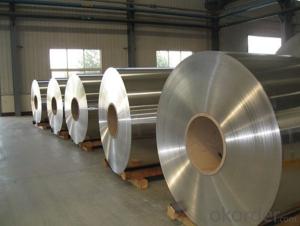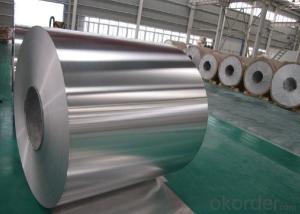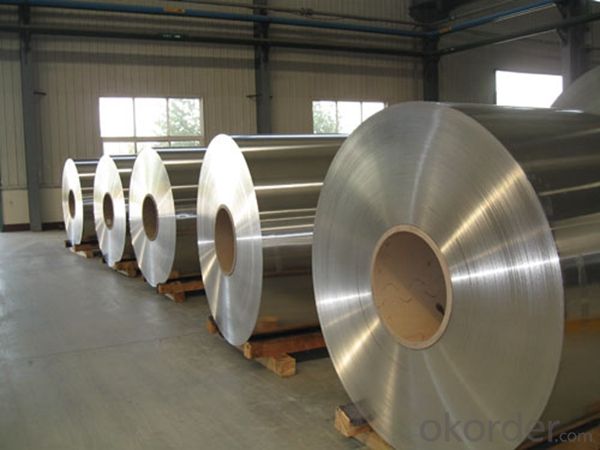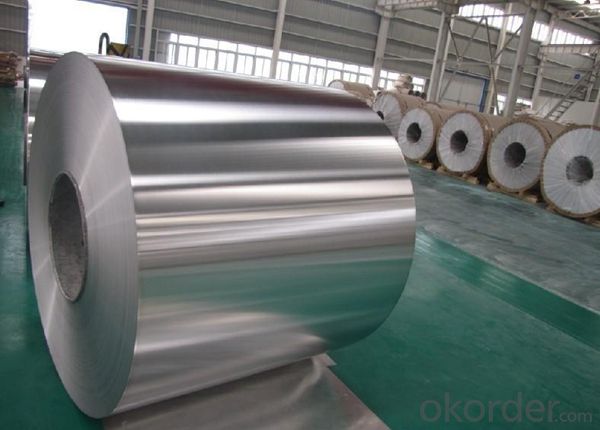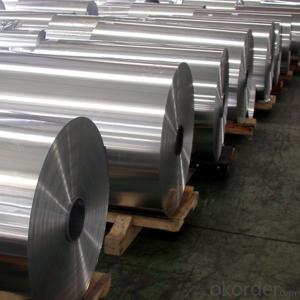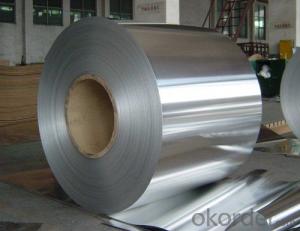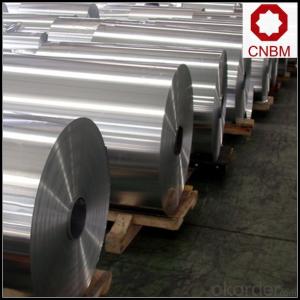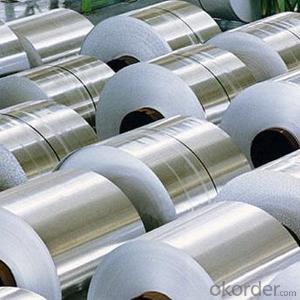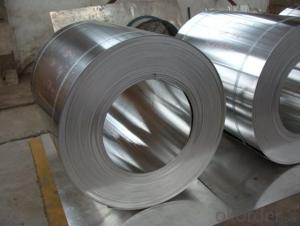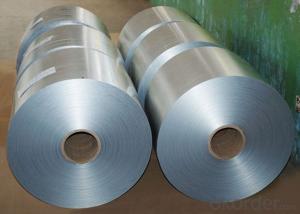Mill Finish 1mm Thick Aluminum Coil 5052 H14 for Marine Boats - Aluminum Coil Rolling Thailand
- Loading Port:
- Shanghai
- Payment Terms:
- TT OR LC
- Min Order Qty:
- 5 m.t.
- Supply Capability:
- 10000 m.t./month
OKorder Service Pledge
OKorder Financial Service
You Might Also Like
Specification
1. Specification of Mill Finish 1mm Thick Aluminum Coil 5052 H14 for Marine Boats
characteristics | Application |
1) Super peeling strength | 1) Building exterior curtain walls |
2) Excellent surface flatness and smoothness | 2) Decoration and renovation additions for old buildings |
3) Superior weather, corrosion, pollutant resistance | 3) Decoration of interior walls, ceilings, bathrooms, kitchens and balconies |
4) Even coating, various colors | 4) Shop door decorations |
5) Fireproof, excellent heat and sound insulation | 5) Advertisement board display platforms and signboards |
6) Superior impact resistance | 6) Wallboards and ceilings for tunnels |
7) Lightweight and easy to process | 7) Industrial materials, materials for vehicles and boats |
2. Application of Mill Finish 1mm Thick Aluminum Coil 5052 H14 for Marine Boats
(1).Interior: wall cladding, ceilings, bathrooms, kitchens and balconies, shutters, doors...
(2).Exterior: wall cladding, facades, roofing, canopies, tunnels,column covers , renovations...
(3).Advertisement: display platforms, signboards, fascia, shop fronts...
3. Feature of Mill Finish 1mm Thick Aluminum Coil 5052 H14 for Marine Boats
*Such coil is specially designed to replace aluminum ingot, due to the high export tax of aluminum ingot, the coil has better price than ingot.
*This type of coil can fit customer's remelting furnace just like ingot, no need to make any change to the production line that was previously used for ingot. The standard coil size and weight is very suitable for the feed gate of furnace.
*This type of coil causes less material wastage than ingot when remelted.
*Our coil is made directly from ore, no need to go though the ingot making process, quality is much better than other suppliers who use ingot scrap to make coil.
Be free from Oil Stain, Dent, Inclusion, Scratches, Stain, Oxide Dicoloration, Breaks, Corrosion, Roll Marks, Dirt Streaks and other defect which will interfere with use
4. Certificate:
SGS and ROHS(if client request, paid by client), MTC(plant provided), Certificate of Origin(FORM A, FORM E, CO), Bureau Veritas and SGS (if client request, paid by client), CIQS certificate
5. Image of Mill Finish 1mm Thick Aluminum Coil 5052 H14 for Marine Boats
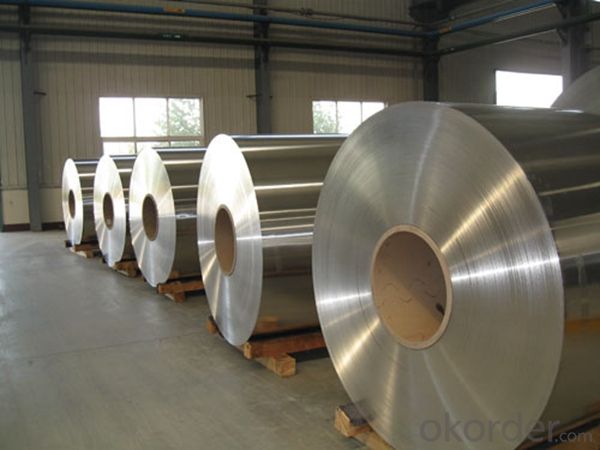
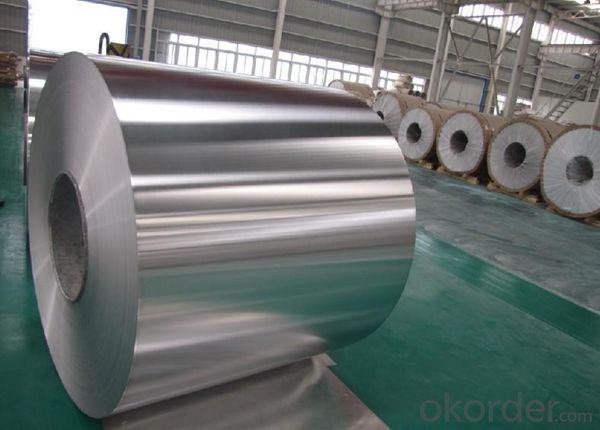
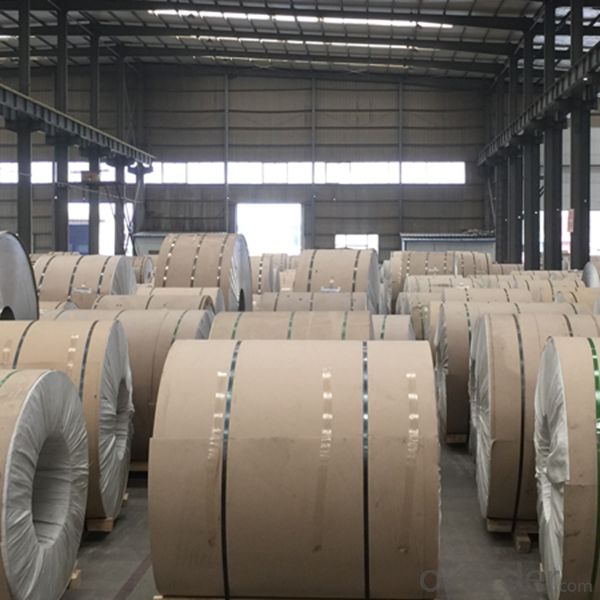
6. Package and shipping of Mill Finish 1mm Thick Aluminum Coil 5052 H14 for Marine Boats
eye to wall
eye to the wall
with wood pallet (wooded case also available)
7. FAQ
1) What is the delivery time?
Dpends on actual order, around 20 to 35 days
2)What is the QC system:
We have QC staff of 20 persons and advanced equipment, each production is with MTC traced from Aluminum ingot lot.
3) What market do you mainly sell to?
Australia, America, Asia, Middle East, Western Europe, Africa etc
- Q: What are the effects of casting temperature on ductility of aluminum coil?
- The tensile strength and ductility increase with the solid solution insulation time, and reach best fit at 1 hour. Continue thermal insulation, and the tensile strength will change little while the ductility will reduce. This is because the solid solution over insulation will cause the work pieces crystallize so that the large crystal reduce the plasticity.
- Q: Can aluminum coils be used in the production of household appliances?
- Yes, aluminum coils can be used in the production of household appliances. Aluminum is a lightweight and durable material that has excellent thermal conductivity, making it ideal for applications in appliances such as refrigerators, air conditioners, and heat pumps. Aluminum coils are commonly used in the condenser and evaporator coils of these appliances, where they help transfer heat efficiently. Additionally, aluminum coils are resistant to corrosion, which is important for ensuring the longevity and performance of household appliances. Overall, aluminum coils are a popular choice in the production of household appliances due to their properties and benefits.
- Q: I'm wondering if there is a resin/molding material that can withstand the heat of melted aluminum for casting parts. I know that sand casting is the 'norm' but is there anything else? I'd rather not have to pack sand every time I want to cast a part.Thanks!
- One common mold material for metal casting is plaster mixed with silica sand to give it more strength. It needs to be completely (like heated) dry before you use it, but it is actually more work than sand casting but it gives a better finish. There are some rubber materials which can withstand the heat of casting pewter, but the melting point of pewter is so much lower than aluminum that I am sure those won't work for aluminum. I think you are pretty much stuck with sand for the easiest method.
- Q: What are the different ACP (Aluminum Composite Panel) applications for aluminum coils?
- There are numerous applications for aluminum coils in the production of Aluminum Composite Panels (ACP). ACP is a popular building material due to its lightweight nature, durability, and versatility. Here are some of the different applications for aluminum coils in the ACP industry: 1. Building Cladding: ACP is widely used for building exteriors as cladding material. The aluminum coils are coated with a protective layer and then bonded to a core material, typically made of polyethylene. This combination provides excellent strength, weather resistance, and insulation properties. 2. Signage and Advertising: Aluminum coils are utilized in the production of signage and advertising boards. The panels can be easily cut, bent, and shaped into various designs and sizes, making them ideal for creating eye-catching displays and billboards. 3. Interior Decoration: ACP is commonly employed for interior decoration purposes. It can be used for wall panels, ceiling panels, partitions, and decorative elements. The aluminum coils can be coated with different colors, finishes, and textures to achieve the desired aesthetic appearance. 4. Furniture Manufacturing: Aluminum coils find applications in the production of furniture, particularly for creating lightweight and durable surfaces. ACPs can be used for tabletops, cabinet doors, shelves, and other furniture components. 5. Transportation Industry: Aluminum coils are also utilized in the transportation industry. ACPs can be used for the construction of vehicle bodies, including buses, trucks, and trailers. The lightweight nature of ACPs helps reduce the overall weight of the vehicle, leading to improved fuel efficiency. 6. Industrial Applications: ACPs are widely employed in various industrial applications. They can be used as wall cladding in manufacturing facilities, cleanrooms, warehouses, and other industrial buildings. The panels provide insulation, fire resistance, and easy maintenance, making them suitable for such environments. 7. Renewable Energy Sector: Aluminum coils are used in the production of solar panel frames. ACPs offer exceptional strength and corrosion resistance, making them an ideal choice for providing structural support to solar panels. In summary, aluminum coils are versatile materials that find applications in a wide range of industries for the production of Aluminum Composite Panels. From building cladding to signage, interior decoration, furniture manufacturing, transportation, industrial applications, and renewable energy sector, the uses of ACPs are extensive.
- Q: Can aluminum coils be formed or shaped?
- Yes, aluminum coils can be formed or shaped. Aluminum is a highly malleable metal, which means it can easily be molded or bent into different shapes without breaking or cracking. Aluminum coils are often used in various applications such as in the manufacturing of heat exchangers, condenser coils, evaporator coils, and air conditioning systems. These coils can be shaped into different forms, such as flat sheets, tubes, or finned coils, depending on the specific requirements of the application. The ability to form and shape aluminum coils makes them highly versatile and widely used in various industries.
- Q: Can aluminum coils be used in the production of air conditioning systems?
- Indeed, air conditioning systems can utilize aluminum coils. The reason behind the widespread usage of aluminum coils in air conditioning systems lies in their remarkable heat transfer properties and ability to resist corrosion. Not only are they lightweight and long-lasting, but they also exhibit high efficiency when it comes to transferring heat between the refrigerant and the air. Moreover, aluminum coils outshine traditional copper coils in terms of environmental friendliness, as they necessitate less energy during the manufacturing process and can be completely recycled. All in all, the performance, durability, and eco-friendliness of aluminum coils make them a favored option for air conditioning systems.
- Q: What are the common testing methods for aluminum coils?
- To ensure the quality and performance of aluminum coils, various testing methods are utilized. These methods encompass: 1. Visual inspection: A comprehensive examination of the coils is conducted to identify any visible defects like dents, scratches, or surface irregularities. This serves as an initial and fundamental step in the testing process. 2. Dimensional measurement: The dimensions of the aluminum coils are measured to verify if they meet the specified requirements. This involves assessing the length, width, and thickness of the coils. 3. Tensile testing: The mechanical properties of the aluminum coils, such as strength and elasticity, are evaluated through tensile testing. This procedure entails applying a tensile force to a sample of the coil until it fractures or deforms, enabling the determination of its tensile strength. 4. Hardness testing: The suitability of aluminum coils for specific applications is determined by assessing their hardness. Various methods, such as Rockwell or Brinell hardness tests, are employed to measure the coil's surface resistance to indentation or scratching. 5. Chemical composition analysis: The chemical composition of the aluminum coil is analyzed to ensure it meets the required specifications. Common techniques used for this analysis include spectroscopy or X-ray fluorescence (XRF) analysis. 6. Corrosion resistance testing: Due to exposure to harsh environmental conditions, it is crucial to assess the resistance of aluminum coils to corrosion. Tests such as salt spray testing or electrochemical impedance spectroscopy (EIS) are conducted to determine the coil's ability to withstand corrosion. 7. Coating quality assessment: If the aluminum coil is coated with a protective layer, testing methods such as adhesion testing, coating thickness measurement, or impact resistance testing are employed to ensure the quality and durability of the coating. These testing methods are commonly employed for aluminum coils. By conducting these tests, manufacturers can guarantee that the coils meet the required standards and perform optimally in their intended applications.
- Q: Are aluminum coils suitable for insulation applications?
- Indeed, insulation applications find aluminum coils to be a fitting option. The outstanding thermal conductivity properties of aluminum make it a widely preferred material for insulation purposes. Its ability to effectively deflect heat and cold renders it an efficient choice for insulating applications. What's more, aluminum coils boast lightweight construction, durability, and resistance to corrosion, rendering them suitable for a range of insulation requirements. Their installation is hassle-free, and they offer enduring insulation performance. In summary, aluminum coils emerge as an exceptional selection for insulation applications.
- Q: Can aluminum coils be used in automotive heat shields?
- Yes, aluminum coils can be used in automotive heat shields. Aluminum is a lightweight and highly conductive material that can effectively dissipate heat. Additionally, it has excellent corrosion resistance properties, which makes it suitable for automotive applications where heat shields are exposed to high temperatures and harsh environments.
- Q: I have completely disassembled my aluminum bass boat and it is being sandblasted.I am restoring the boat and will be giving it a new paint job.What do you recommend in the way of primer,paint or anything else I need to know.I just don,t want to mess it up by using the wrong thing.Best answer gets a fishing trip in the same boat we are talking about. If you can make it here I will put you on some fish.Catfish,bream,crappie,bass or even saltwater fish.
- Altough Pettit says you can topcoat this primer, you will probably get a better result if you prime the primer with whatever is recommended for the type of topcoat you use. For the hull, use a paint with a high UV rating, and avoid using red, it oxidizes faster. I would also suggest you use the Alumaprotect inside the hull as well.
Send your message to us
Mill Finish 1mm Thick Aluminum Coil 5052 H14 for Marine Boats - Aluminum Coil Rolling Thailand
- Loading Port:
- Shanghai
- Payment Terms:
- TT OR LC
- Min Order Qty:
- 5 m.t.
- Supply Capability:
- 10000 m.t./month
OKorder Service Pledge
OKorder Financial Service
Similar products
Hot products
Hot Searches
Related keywords
